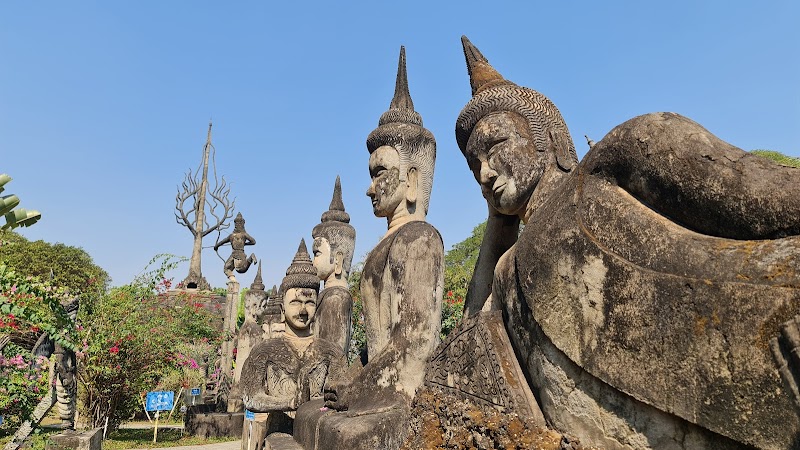
Phou Khao Khouay National Biodiversity Conservation Area Adventures
Phou Khao Khouay NBCA protects diverse forest ecosystems and abundant wildlife, offering excellent opportunities for hiking, wildlife observation, and experiencing Laos' natural heritage.
About Phou Khao Khouay National Biodiversity Conservation Area

Phou Khao Khouay National Biodiversity Conservation Area (NBCA), located approximately 40 kilometers northeast of Vientiane, Laos, spans across Bolikhamxay and Vientiane provinces. Established in 1993, this protected area covers extensive hill ranges and low mountain terrain, providing critical habitat to a wealth of flora and fauna. The landscape features mixed deciduous and evergreen forests, limestone karst formations, rivers, and waterfalls, creating an ecologically valuable and visually striking environment. The NBCA is home to rare species such as Asian elephants, Indochinese tigers, and a variety of primates and bird species, making it a key site for biodiversity conservation in Laos. Visitors can explore numerous hiking trails that traverse dense forest and offer views of waterfalls like Tad Leuk, as well as caves and river valleys. The area is intersected by the Nam Ngum River, contributing to its diverse aquatic habitats. In addition to nature-based recreation, Phou Khao Khouay provides cultural insights, as nearby villages maintain traditional lifestyles. The conservation efforts here emphasize balancing biodiversity preservation with sustainable tourism, attracting eco-conscious travelers seeking off-the-beaten-path experiences. Its close proximity to Vientiane makes this NBCA one of the most accessible wild areas in northern Laos, ideal for hiking, wildlife spotting, and photography excursions. Visitor infrastructure is minimal, preserving the area's remote atmosphere, but basic guides and local operators offer access and interpretive services.
Highlights
Tad Leuk Waterfall – a multi-tiered waterfall set within dense forest
Mixed evergreen and deciduous forest ecosystems supporting endangered wildlife
Scenic hiking trails offering panoramic views of the surrounding hills and river valleys
Notable limestone caves providing habitats for rare bat species
Notable Natural Features
Tad Leuk Waterfall
A picturesque, multi-level waterfall located deep within the forest, popular for swimming and photography.
Nam Ngum River
A major river running through the conservation area, supporting diverse aquatic species and riparian habitats.
Limestone Caves
Several caves carved into limestone karsts shelter bat colonies and provide exploration opportunities.
